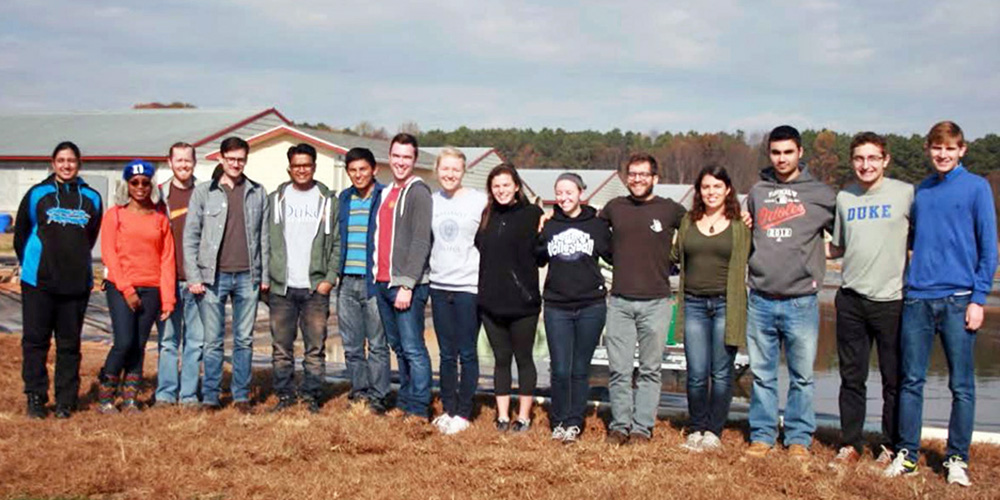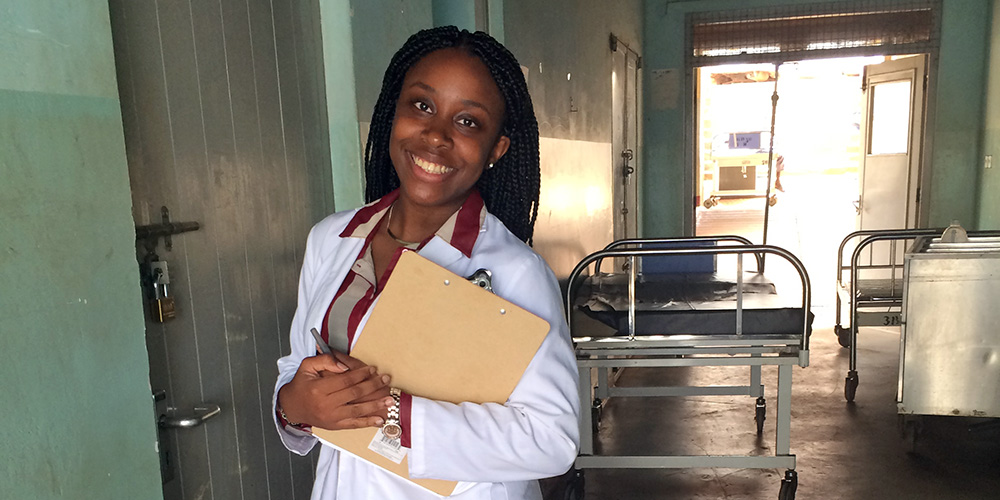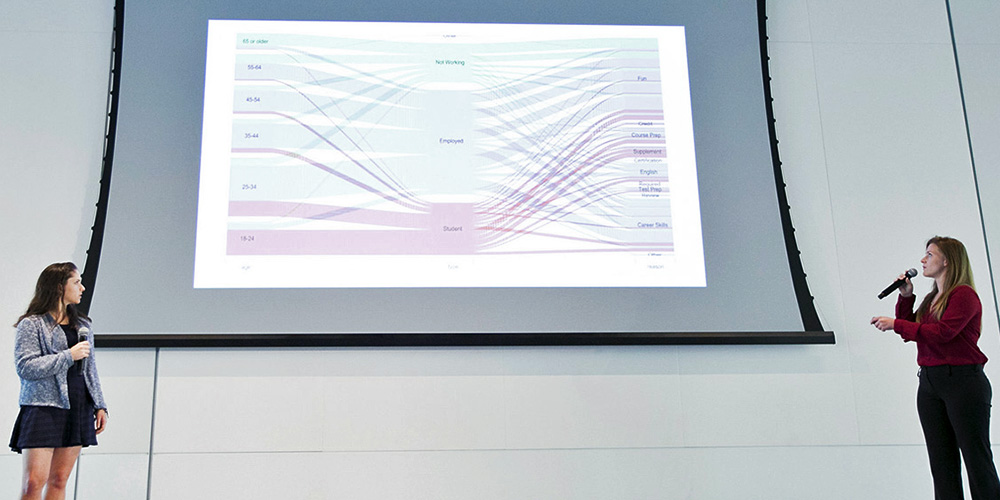“Bass Connections Equals Opportunity:” Four Undergraduates Share Their Perspectives
What’s it like to be on a Bass Connections team? Duke students Khalid Williams, Erin Locey, John Benhart and Chinemerem Nwosu reflect on their experiences over the past year.
What Can Large Animal Farms Do with All That Waste?
Computer Science major John Benhart ’19 took part in a Bass Connections project to explore how policies affect animal waste management in a variety of countries and the concurrent health effects. View the team’s research poster and paper with recommendations.
I learned about Bass Connections before coming to Duke. It was one of the big reasons I actually came! On our project we have people who are getting their master’s in engineering, and we have undergrads who are majoring in econ, comp sci, global health… Bass Connections is a way to come together with people from around Duke to focus on a specific issue and learn a lot about it—and then produce something that tries to help.

How Can We Improve Outcomes for Neurosurgery Patients?
Chinemerem Nwosu ’19 is a Program II major studying determinants of health outcomes in Sub-Saharan Africa. She joined a project that partnered with Mulago National Referral Hospital in Uganda to strengthen infection control, patient-family education and medication management, all with the aim of helping neurosugery patients to have greater chances of a positive outcome. The team shared findings at the Consortium of Universities for Global Health conference and submitted several manuscripts for publication in a journal.
You walk out of Bass Connections a different person. In terms of research, you’re doing what you love, you’re doing it with people that you love, you’re doing it where you want to do it—Bass puts all of that in one experience. Bass Connections equals opportunity.

Who Benefits from Massive Open Online Courses?
As part of a Bass Connections project that partnered with researchers at Stanford and the University of Michigan, Evolutionary Anthropology major Erin Locey ’17 looked into motivations for enrolling in MOOCs and evaluated differences between university students and nonstudents. View her research poster with Dorian Canelas and watch her presentation with Alice Silberstein.
Not a lot of people come out of Duke with published papers that they’re the primary author on. I feel like that’s a really great thing that this team offered me.

Can a Nanobot Help Young People Understand Neuroscience?
Khalid Williams ’18, a Neuroscience major, participated in a project to communicate key issues in brain research to a broad audience. Part of this work is an educational video game to help teenagers learn about neuroscience. Players inhabit the first-person perspective of a futuristic medical nanobot that has just been injected into the muscle of a victim of a rabid dog bite. From there it’s a race against time for the nanobot to deploy various cellular “weapons” to defeat the rabies virus before it multiplies and reaches the brain. Success depends on acquiring knowledge about neurobiology, and then putting that knowledge to work.
I’ve been learning skills over the past year that I never thought I’d have exposure to! I think one of the best things about Bass Connections is that it gives you an opportunity to be intimately involved with very sophisticated and difficult research topics, with the freedom that you might not otherwise have in a more traditional undergraduate research setting.

Learn More
- For perspectives from graduate and professional students, browse stories from Ph.D., M.D. and master’s students.
- See what students are doing in two Bass Connections summer programs: come to the Story+ presentations on June 28 and the Data+ poster session on July 28.
- Review Bass Connections courses and find out how to get involved.